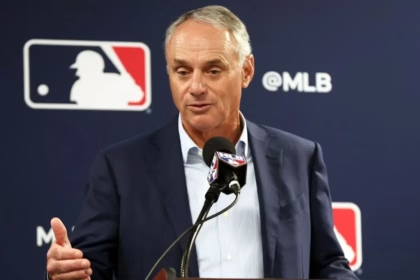Hal Steinbrenner Seeks to Reduce the Yankees’ Payroll for 2026
Yankees owner Hal Steinbrenner has expressed his desire to reduce the team’s payroll for the 2026 season, although he acknowledged that it is too early to determine a specific range. Steinbrenner mentioned that he would prefer the figure to decrease from the $319 million that, according to him, the team spent on player salaries in 2025.The Yankees haven’t achieved a championship in 16 consecutive seasons, a streak that extended this year as they were eliminated by the Toronto Blue Jays in the American League Division Series. Steinbrenner emphasized that the disappointing result was not due to manager Aaron Boone, whom he called a “good manager in many of the things he has to do,” but rather to the players for not performing in October. He lamented New York’s mid-season problems, a pattern in recent years, which ultimately cost the Yankees the American League East Division title, a pass to the American League Division Series, and home-field advantage against the Blue Jays. Steinbrenner also pointed out mental errors, especially baserunning mistakes, which were a problem and led to the firing of first base coach Travis Chapman. He also questioned the idea that the Yankees made a profit in 2025, suggesting they lost money after the franchise was reported to have generated more than $700 million in revenue this year.Would it be ideal if [the payroll] went down? Of course. But, does that mean it’s going to happen? Of course not. We want to build a team that we know we believe could win a championship.
Hal Steinbrenner
According to Cot’s Baseball Contracts, the Yankees’ projected payroll is $278.1 million, which includes a projected competitive balance tax of $18.7 million for being more than $34.1 million over the $244 million threshold. The Yankees’ transactions this offseason so far include offering center fielder Trent Grisham the one-year, $22.05 million qualifying offer; signing veteran lefty Ryan Yarbrough to a one-year, $2.5 million contract; and non-tendering five relievers, including right-handers Mark Leiter Jr. and Ian Hamilton. Steinbrenner emphasized that the Yankees still “need” to add another outfielder and improve the bullpen. With Grisham’s decision, the Yankees are weighing their options in left field, which includes re-signing Cody Bellinger, one of the most important free agents on the market. Steinbrenner declined to comment on the Yankees’ pursuit of Bellinger. The bullpen could also lose right-handers Devin Williams and Luke Weaver in free agency. Filling those needs would probably inflate the Yankees’ payroll. Steinbrenner said he is open to all possibilities presented to him by general manager Brian Cashman.I don’t want to get into that, but that’s not a fair or accurate statement. Everyone wants to talk about revenue. They need to talk about our expenses, including the $100 million in expenses for the city of New York that we have to pay every February 1st, including the COVID year. It all starts to add up quickly.
Hal Steinbrenner
The Yankees, who have exceeded the Competitive Balance Tax (CBT) threshold in the last four seasons, finished with the third-highest CBT payroll in the majors in 2025, behind the Los Angeles Dodgers and the New York Mets. The Dodgers, however, were in a different stratosphere: their spending, approximately $415 million, according to Cot’s, eclipsed their peers’ spending, amplifying calls for a salary cap from fans and owners with the Collective Bargaining Agreement expiring on December 1, 2026. The Dodgers became the first team since the Yankees in 2000 to win consecutive World Series titles, but Steinbrenner said he believes there is a “weak correlation” between spending more money and winning championships. He reiterated that he “would consider supporting a cap only if accompanied by a floor”, depending on the amount. Steinbrenner also commented on the perception of fans and the importance of competitiveness in baseball, noting the concern of some fans about their team’s chances of reaching the playoffs.We can talk before [Cashman] goes to the winter meetings about a range. But, because it’s a fluid situation, that range can disappear in two seconds if an agreement arises that I think would be very beneficial for some area of need that we have.
Hal Steinbrenner










